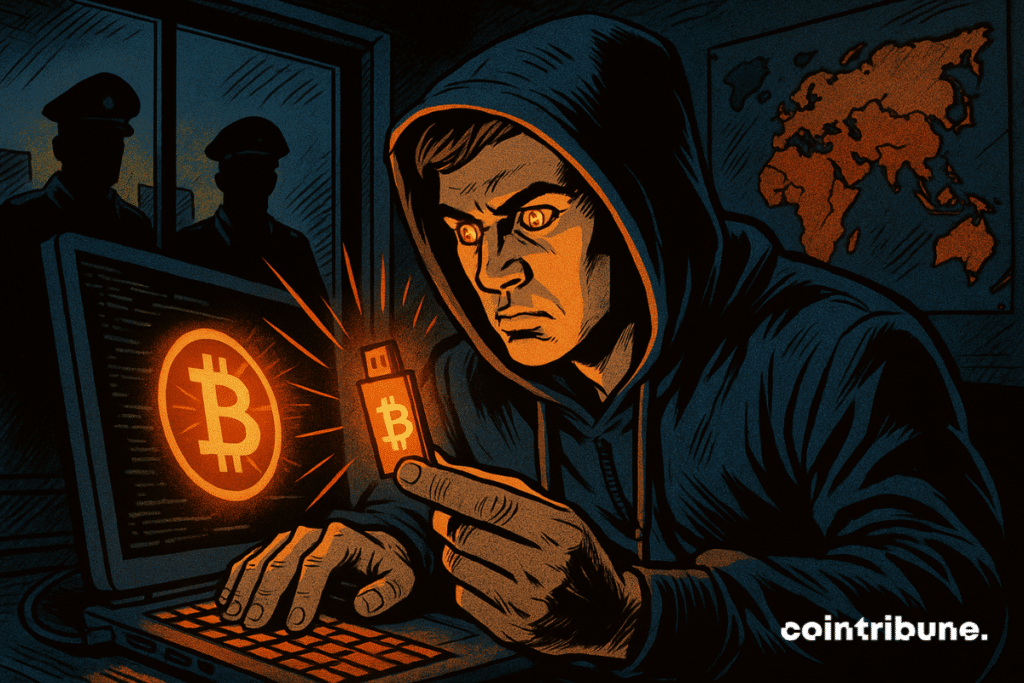Why Bitcoin Is the Ultimate Dictator’s Nightmare – A Human Rights Expert Explodes the Myth
Bitcoin just won't play nice with authoritarian regimes—and that's a feature, not a bug.
The censorship-resistant hammer
No firewalls. No capital controls. No 'request denied' screens when citizens move value. Bitcoin's decentralized architecture flips the script on financial oppression—one immutable block at a time.
Dictators hate this one trick
When every wallet is its own central bank, the usual playbook—asset freezes, transaction surveillance, inflationary money printing—gets tossed in the shredder. Ask any human rights activist: crypto's borderless nature cuts both ways.
The irony of 'freedom tech'
Meanwhile, hedge funds still can't decide if BTC is digital gold or a risk asset. Maybe it's both—just like it's both a protest tool and the ultimate 'exit liquidity' for corrupt regimes. The blockchain doesn't care about your narrative.

In brief
- Bitcoin allows circumventing authoritarian regimes’ controls over money and identity.
- The Human Rights Foundation defends its use as a bulwark against inflation and repression.
- Since 2013, the organization has used bitcoin to support dissidents and pro-democracy movements.
- The United States, under Trump, also accumulates BTC, in a logic of monetary sovereignty.
Bitcoin decimates authoritarian control
Alex Gladstein, Chief Strategy Officer at the Human Rights Foundation, delivered an unequivocal message at the Bitcoin Policy Summit in Washington.
Before an assembly of American policymakers, he stated that bitcoin “literally saves” citizens living under authoritarian regimes.
“Bitcoin is bad for dictators,” he declared, highlighting how this technology weakens the traditional levers of control used by oppressive states.
According to Gladstein, dictatorships generally rely on three tools to maintain their hold:
- Hyperinflation, which erodes savings and impoverishes the population.
- Freezing bank accounts to stifle any opposition.
- Financial surveillance to identify and neutralize dissidents.
If you hold your bitcoins yourself, governments can neither erase nor freeze them, and they certainly cannot inflict hyperinflation on you.
In countries where the economy falters and fundamental freedoms are threatened, this FORM of financial independence becomes a vital bulwark.
From Ukraine to the United States, a strategic adoption
The story of bitcoin as a tool of resistance takes root in 2013, during the Ukrainian revolution.
As pro-democracy protesters defy Viktor Yanukovych’s authoritarian regime, the Human Rights Foundation discovers for the first time the subversive potential of this still nascent digital currency.
BTCUSDT chart by TradingView“It was very early in bitcoin’s lifecycle; bitcoin was worth about a hundred dollars back then; we were very skeptical about its effectiveness“, recalls Alex Gladstein.
Facing frozen bank accounts, pro-democracy protesters were looking for a way to fund their actions without going through traditional channels.
Bitcoin fulfilled this role: it allowed them to “send value where traditional money could no longer circulate“.
This first-hand experience reinforced HRF’s intuition: bitcoin can now bypass locked banking systems and offer a financial lifeline to oppressed activists.
Since then, the organization supports many movements worldwide by relying on this resilient technology.
The irony of the story? This weapon of liberation now appeals to great powers. The United States, under the Donald TRUMP administration, accumulates bitcoin through judicial seizures. Objective: to build a national strategic reserve. Bitcoin reveals its dual nature: shield of the oppressed, sword of sovereign states.
Gladstein warns, however: the effectiveness of this technology depends on rigorous use. “If they use bitcoin correctly, without associating it with their identity“, citizens can escape surveillance. But a simple technical negligence can compromise everything.
In sum, bitcoin is gradually establishing itself as a major geopolitical force. On one side, it emancipates citizens from authoritarian regimes. On the other, it becomes an instrument of power for Western democracies. This duality redefines global balances and could well transform the very nature of political power in the 21st century.
Maximize your Cointribune experience with our "Read to Earn" program! For every article you read, earn points and access exclusive rewards. Sign up now and start earning benefits.

